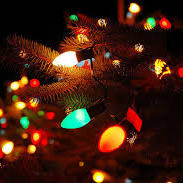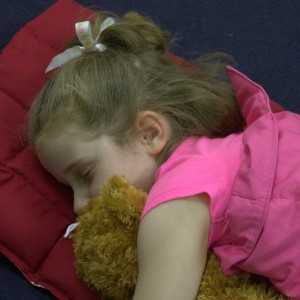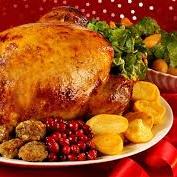 Christmas means family, friends, parties, presents, food, music, lights, decorations, Santa and lots of hugs. Everything looks and sounds different, from decorations at home to Christmas music in the shops. Routines change at home and at school with parties, outings and concerts. There are lots of extra people about from family and friends visiting to crowds in the shops. The routine of the days prior to Christmas and the day itself is different to the usual daily routine. Then there is the "surprise" of presents. Sounds great for most kids but for a child on the autism spectrum it can mean anxiety and meltdowns.
Christmas means family, friends, parties, presents, food, music, lights, decorations, Santa and lots of hugs. Everything looks and sounds different, from decorations at home to Christmas music in the shops. Routines change at home and at school with parties, outings and concerts. There are lots of extra people about from family and friends visiting to crowds in the shops. The routine of the days prior to Christmas and the day itself is different to the usual daily routine. Then there is the "surprise" of presents. Sounds great for most kids but for a child on the autism spectrum it can mean anxiety and meltdowns.
Here are some strategies that may be helpful to reduce your child's stress and anxiety levels:
Prepare your child in advance.
Help your child to know what is likely to happen as much as you can. You could do this by:
- making a calendar or visual schedule to show all the things that will happen leading up to Christmas day including school events, parties, the beginning of the holidays, shopping days, when you will put the decorations up, when family and visitors will arrive etc. Include when you will take down the decorations so your child can see when things get back to normal. Cross off the days and events as they pass.
- writing a social story about preparing for Christmas and what will happen on the day
- using visuals to show your child what things such as decorations, the Christmas tree, the Christmas lunch etc will look like. Be careful if your child is very literal and the pictures do bot look exactly the same as this may upset them. You can use pictures from the internet or from magazines and catalogues or your own photos from past Christmases. Try to use pictures as close to the real thing as possible.
 Dealing with shopping.
Dealing with shopping.
If your child does not cope well with shopping the extra crowds, queues and sensory stimulation will not help. Consider the following options:
- leaving your child with someone else if you can rather than taking them shopping
- shopping well ahead before the crowds build up
- shopping on-line
- allowing your child to browse for presents from catalogues rather than in the shop
- shopping in short bursts over a number of days or weeks rather than all at once, such as food one day, presents another.
Dealing with Santa
Santa can be scary for lots of kids, more so for kids with ASD. Start with Santa from a distance, at a parade, from a distance at the shops, in pictures or on TV. Be guided by your child's reactions as to when if ever it is time to move closer. You can always send a letter or email to Santa about presents.
If you would like to have a photo of your child with Santa here is a lovely video to help prepare your child for the visit:
 Dealing with decorations:
Dealing with decorations:
- include in your calendar or visual schedule when the decorations will be put up, what they will look like and when they will come down
- write a social story together about why we have decorations for Christmas
- look at the decorations a few times before they are put up and talk about where they will go
- include your child in choosing or making and putting up the decorations
- make decorating a gradual process if this helps your child to adjust
- think about your child sensory needs. If you want lights, ones that are on all the time may be better than flashing ones. Very shiny things such as bright tinsel may be overwhelming for some children as can noisy, musical decorations.
Dealing with presents.
 Kids with ASD often do not like surprises. The following may help:
Kids with ASD often do not like surprises. The following may help:
- pre-warn them what their present will be so they will not worry that they will not get what they want
- teaching them appropriate things to say when they are given presents, including what to say if they do not like the present they are given. A social story may help here.
- tell relatives of suitable things to buy for your child
- wrap your child's gift in cellophane so they can see what it is when it is under the tree to reduce the stress of the unknown
- reduce the chances of your child being overwhelmed by too many gifts by giving them one at a time over a period or suggesting that relatives give your child money or vouchers to be used later on.
 Dealing with people:
Dealing with people:
- let family know that your child is likely to be overwhelmed
- keep visits to other peoples homes short if needed
- take some things which help your child feel calm such as a favourite toy, DVD or electronic game
- let people know if your child does not like to hug or kiss people. Explain that it does not mean they do not like people but that it makes their senses overwhelmed. Don't allow your child to be forced into doing this. Teach them to say please and thank you, or perhaps give a "hi five" or shake hands instead if they are more comfortable with that.
- help your child to know of a place where they can withdraw at other peoples houses or take them somewhere quiet for a break if needed
- agree with your child a quite safe place at home where they can go if you have visitors and they are feeling overwhelmed
- dress your child for comfort rather than focusing on "looking good" If "going out clothes" means they are uncomfortable this will increase stress levels and make meltdowns more likely
Dealing with food issues
- if your child is on a special diet it may be best to tell other people not to give food to your child
- if your child is a fussy eater take some food with you that you know they will eat
- when having dinner at home allow your child to have familiar foods that they will eat rather than making an issue of trying unfamiliar foods. Christmas day is not the time to fight food battles or stress over nutrition.
 Be realistic
Be realistic
Christmas may not be all smooth sailing. It may be about reducing some meltdowns and educating family and friends about the ones that you can't avoid.
The download section of Our website has more ideas, information and activities for kids with special needs.Check our Pinterest page for loads more activities and ideas. Check the Talking Matters website for other useful resources. Like us on Facebook and follow us on Twitter so you don't miss out on what's happening. Follow this blog to see more Christmas ideas over the next few weeks.
If you are a regular client of Talking Matters don't forget to book your tickets to our ASD friendly TM Kids Christmas Party, coming up on the 27th Nov. Visit our Facebook page for how to book your place.
Jo Brenecki
Related Blog Posts
If you liked this post you may also like:
10 Tips for HFA
ASD: Think and feel
Why use PECS?
Superpowers at home



